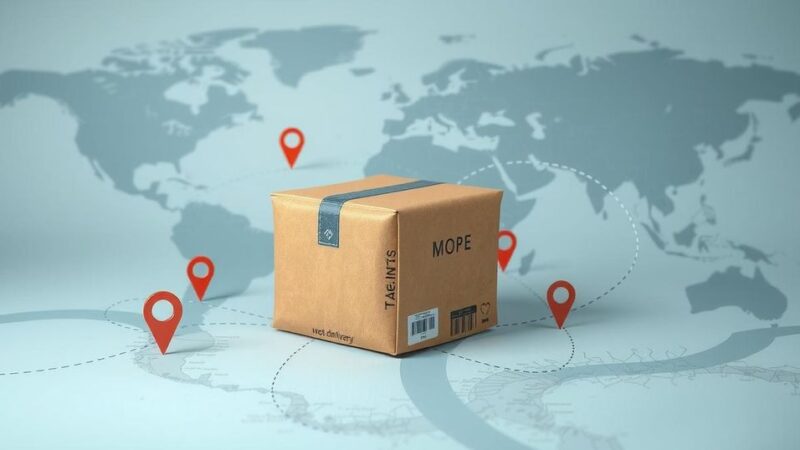Thailand maintains its position as the top orchid exporter while enhancing rail connections with Laos and China. Malaysia’s trade grows by 5.9%, and Microsoft remains stable despite US export restrictions. Regional cooperation strengthens with Lithuania’s ASEAN accession, and the Thai government continues to address household debts and promotes inclusivity for individuals with disabilities. Recent tourism initiatives aim to attract more visitors by 2025.
Thailand has reaffirmed its position as the world’s leading orchid exporter, showcasing its unique and diverse flora to international markets. In a related development, the Thai government is aiming to enhance rail connectivity with neighboring countries, including Laos and China, to improve logistical efficiency for trade.
Malaysia reported a year-on-year trade growth of 5.9% in February 2025, reaching a turnover of 223.89 billion MYR (approximately 55.97 billion USD). This positive trend is indicative of the country’s robust economic performance and potential for further expansion.
Furthermore, Microsoft has confirmed that its AI infrastructure deployment remains unaffected by the recent US export restrictions on semiconductor technology, continuing its operations in Malaysia seamlessly.
Lithuania is set to join the ASEAN Treaty of Amity and Cooperation following Cabinet approval, as it prepares to submit its accession request to Malaysia, the current ASEAN Chair. This marks a significant step in enhancing regional collaboration.
In regards to aviation, Malaysia has recently approved the resumption of the search for flight MH370, which has remained a mystery since its disappearance, deeply impacting the families of the passengers.
The semiconductor industry in Malaysia faces several challenges including a shortage of skilled talent, funding gaps, and supply chain issues, all of which need to be addressed for the nation to remain competitive on a global scale.
Mexico is strengthening its relationship with ASEAN, viewing membership in the Treaty as crucial for expanding collaboration across various sectors.
Thailand’s government is actively exploring solutions to mitigate the household debt crisis, which is regarded as a significant impediment to economic growth. Discussions with banking representatives are underway to devise effective strategies.
The ASEAN region is also moving towards sustainable agriculture, as indicated by recent guidelines launched in Laos aimed at transitioning to agroecology and linking it with green finance initiatives.
Singapore is committed to enhancing global security, particularly in light of emerging asymmetric threats linked to rapid technological advancements, articulated by Deputy Prime Minister Heng Swee Keat.
The Hong Kong administration is working towards easing entry procedures for ASEAN visitors who have contributed positively to local economic development, aimed at fostering stronger regional ties.
There are significant concerns with ongoing scam operations along the Thailand-Myanmar border, with estimates suggesting that up to 100,000 individuals are still employed in these illicit activities.
In technology advancements, Thailand is developing artificial intelligence systems dedicated to fraud detection, spearheaded by SAS Institute, a leader in data analytics.
Moreover, the Philippine government has issued a warning regarding human trafficking, following the successful repatriation of victims from Cambodia.
In tourism news, Thailand has decided to shorten the visa-free stay for exempt countries from 60 days to 30 days, a measure agreed upon by various stakeholders to manage tourism more effectively.
Innovations on the water include the introduction of solar-powered electric boats scheduled to operate on the Singapore River next month, marking a step towards sustainable transportation.
Additionally, the Thai government has announced a waiver of re-entry fees for migrant workers during the Songkran holiday, effective from April 1 to May 15, to facilitate their return.
An earthquake struck North Sumatra, Indonesia, with a depth reported at 86 kilometers according to the German Research Centre for Geosciences (GFZ), prompting monitoring of aftershocks and safety protocols.
In a progressive move, the Thai government is expanding employment opportunities for individuals with disabilities, mandating businesses and agencies to hire a specific ratio, with penalties for non-compliance directed toward a support fund.
Lastly, in a bid to boost tourism investment, a prominent world business leader met with the Thai Prime Minister to discuss initiatives for the upcoming Amazing Thailand Grand Tourism and Sports Year in 2025, aiming to attract more visitors through diverse offerings.
In conclusion, Thailand, as the leading orchid exporter, continues to forge significant partnerships in trade and logistics, particularly with Laos and China. Malaysia’s impressive trade growth reflects a vibrant economy, while regional cooperation expands with Lithuania’s accession to ASEAN. Additionally, addressing household debt in Thailand and enhancing overall employment opportunities demonstrates a proactive approach towards economic viability and inclusivity. These developments collectively indicate a promising trajectory for the region’s economic landscape.
Original Source: en.vietnamplus.vn






